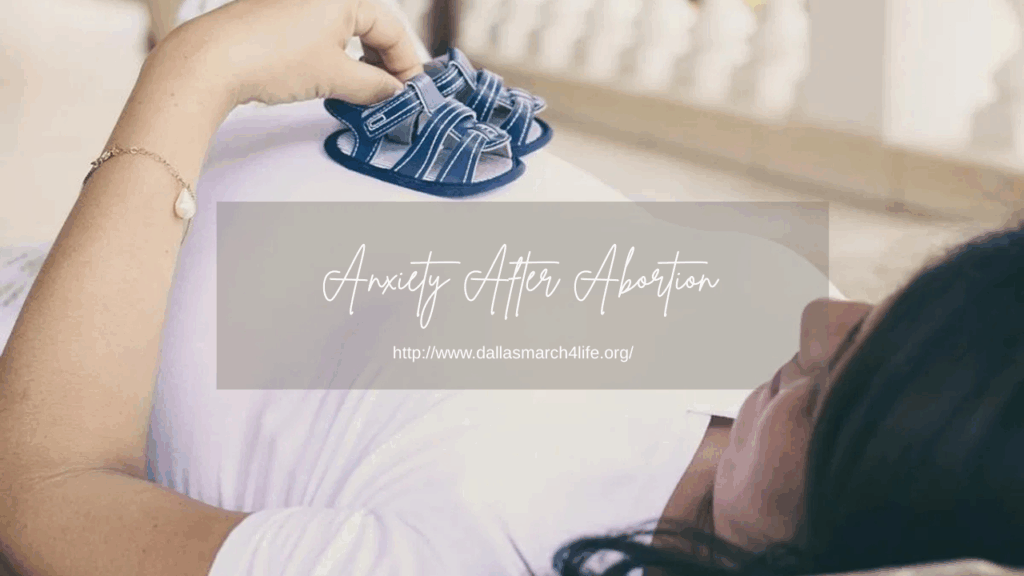
Anxiety often shows up in unexpected ways. For some individuals, it appears in racing thoughts, sleepless nights, or a constant sense of unease. For others, it takes the form of panic attacks or persistent worry about the future. After an abortion, anxiety can manifest quietly but powerfully, leaving many people struggling in silence. At Dallas March 4 Life, we understand that emotional well-being is deeply connected to both mental health and recovery. That is why we provide compassionate, individualized care to help people heal from anxiety, trauma, and other challenges that may follow difficult life experiences.
Understanding Anxiety After Abortion
Not everyone who undergoes an abortion experiences anxiety, but for those who do, the feelings can be overwhelming. Anxiety can be triggered by personal beliefs, fear of judgment, or even unresolved grief. The emotional impact may surface immediately or months later, making it hard to identify the root cause. This is why professional support is so important. When anxiety is left untreated, it can contribute to depression, substance use, or strained relationships.
Common Signs of Post-Abortion Anxiety
- Persistent worry or fear that will not go away
- Difficulty sleeping or frequent nightmares
- Sudden panic attacks or physical tension
- Guilt, shame, or feelings of isolation
- Avoidance of people, places, or conversations related to the experience
The Role of Support in Healing
One of the most powerful ways to ease anxiety is through connection. Isolation can worsen emotional struggles, but support provides a foundation for recovery. At Dallas March 4 Life, our programs are designed to help individuals process their emotions in safe, nonjudgmental spaces. Whether someone chooses inpatient or outpatient treatment, they are surrounded by professionals and peers who understand the journey toward healing.
Inpatient and Outpatient Options
Some individuals benefit from inpatient care, which provides structure, daily therapeutic support, and a nurturing environment. Others may find outpatient treatment to be the right fit, allowing them to balance responsibilities while still receiving consistent care. Both paths emphasize personalized treatment that addresses the unique emotional and spiritual needs of each individual.
Faith-Based and Holistic Healing
For many, faith is an important part of recovery. Our faith-based approach integrates spiritual guidance with clinical care, helping individuals find meaning and peace. Alongside this, we use holistic practices such as mindfulness, wellness activities, and counseling to restore balance to the mind and body. This combination allows people to heal on every level, not just from the symptoms of anxiety.
Coping Strategies for Anxiety
In addition to professional treatment, individuals can use simple yet powerful strategies to reduce anxiety:
- Breathing techniques to calm the body during moments of panic
- Journaling to release thoughts and emotions in a safe way
- Prayer or meditation for grounding and spiritual strength
- Support groups where shared experiences create encouragement
- Self-care practices like exercise, rest, and healthy nutrition to build resilience
Moving Toward Peace and Renewal
Anxiety after abortion can feel like a hidden burden, but it does not have to define a person’s life. With the right support, it is possible to move beyond fear and into healing. At Dallas March 4 Life, we are committed to walking alongside individuals with compassion, professionalism, and care that treats the whole person.
Conclusion
If you or someone you love is experiencing anxiety after abortion, know that you are not alone. Healing is possible, and help is available. Dallas March 4 Life offers faith-based, holistic, and individualized treatment to support your emotional and mental health. Take the next step today by reaching out for care. Together, we can replace anxiety with hope, strength, and peace.